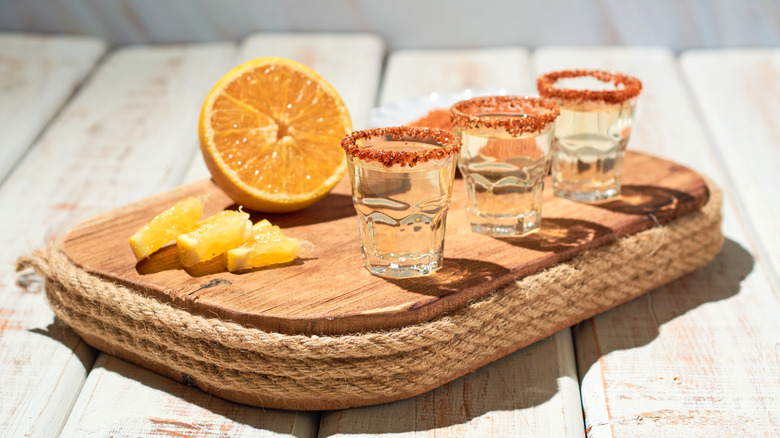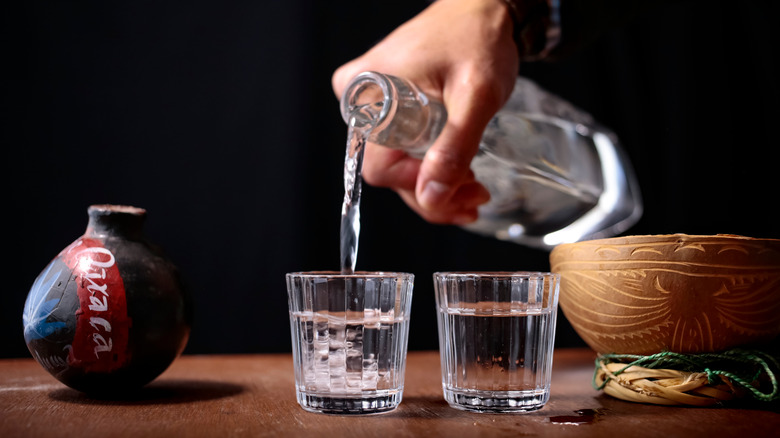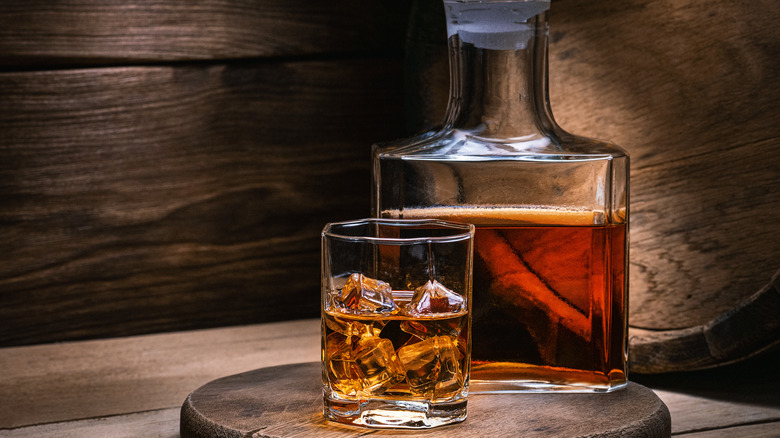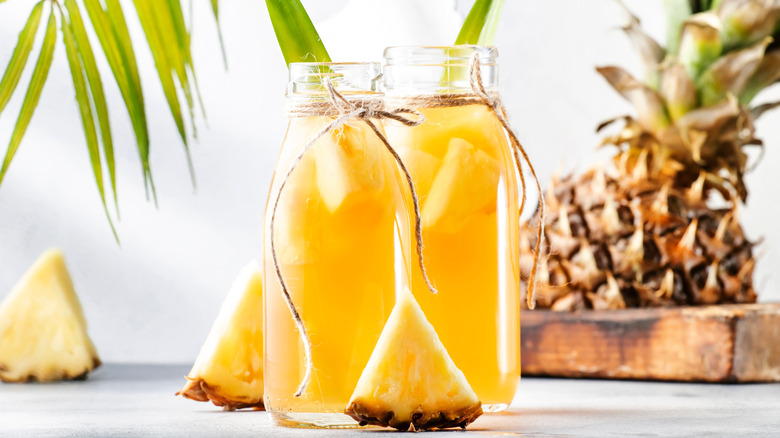Tequila Alternatives: Other Mexican Spirits You Should Try
Whether cozy around the fire on a cold winter evening or enjoying life poolside on a sweltering summer day, tequila's smooth, citrusy bite and warming elements can make a good thing better. This Mexican spirit is often featured in margaritas but also plays well in other cocktails, such as Palomas, Mexican mules, the ever-classic tequila sunrise, and the Texas favorite, Ranch Water. While margaritas (and other tequila-forward cocktails) are delicious, and tequila shots are still worth doing in moderation, there's a whole world of Mexican spirits to explore. Thanks to online alcohol delivery services, you can still enjoy them even while your local cantina is closed.
If you love tequila but are looking to branch out into the world of other Mexican spirits, we have some options for you to try. From the smoky, earthy notes of mezcal to the light, fruity flavors of tepache, there's something for every cocktail and spirit lover to appreciate.
Mezcal is great for sipping straight
One Mexican liquor that's gaining notoriety is mezcal. Mezcal was created when the Spanish landed in Mexico but is often thought of as just a smoky version of tequila. Like tequila, mezcal is made with the piña (heart) of the agave. Unlike tequila, mezcal can be made with several varieties of agave and produced in nine different Mexican states, rather than the five states to which tequila production is limited.
The hearts are roasted in pits with lava stones that give mezcal a smoky flavor before it's mashed and distilled. "It's very unregulated in terms of how it's made and produced, so mezcal's sort of a mysterious kind of spirit," explained Vajra Stratigos, director of food and beverage for Atlanta-based Fifth Group Restaurants. "As a result, there's many different styles and spheres of influence. It's really and truly one of the only formative spirits in the world today in that there are rules and processes still being defined."
Mezcal's popularity increases as our culture remains obsessed with all things craft. Drinkers interested in sipping — rather than taking shots — should try a joven (young) mezcal. It's un-aged but still earthy and rich with smokiness. Those with palates already accustomed to more pronounced smoky notes should try oak barrel-aged reposado (aged between two months and one year) or añejo (aged for one to three years). We suggest drinking it neat so the flavors open up.
Mexican whiskey makes a fantastic cocktail
Mexican distilleries have been getting into the whiskey game since 2013. A staple of Mexican agriculture, corn is used to create this flavorful spirit. Oaxacan distillers tend to use different varieties of corn, such as white, yellow, and black. Depending on the bottle, sometimes different corn varieties — including ancestral and heirloom — are used to create uniquely nuanced tasting notes. While the flavors vary, Mexican whiskey is often said to have a more corn-forward profile, along with some smoky notes, vanilla, honey, and other toasted, roasted characteristics.
Pierde Almas is the brainchild of Jonathan Barbieri, an American artist who resettled in Mexico in the '80s and established the company as a maker of mezcal. In 2014, he delved into producing whiskey with ancestral corn to preserve in the face of expanding genetically modified corn. The corn is sourced from small farms and produces a floral, light whiskey.
Tepache and pulque are for fruit lovers
Other regional spirits exist, too, though you may have to go to Mexico to sip them — or make your own. Tepache, which is becoming increasingly popular in the United States, is made by fermenting pineapple rinds with brown sugar and cinnamon. This produces a low-ABV drink, usually around 2%. Sometimes likened to Mexican kombucha, tepache is a great summer drink.
In Central Mexico, you may discover pulque, a milk-colored drink made from fermented agave sap. It's sweet and viscous with a subtle yeast flavor that blends nicely with tart pineapple juice or sweeter strawberry juice. You might have a hard time seeking it out in the States. However, if you like to DIY, you can make pulque at home by aiding the process with yeast instead of allowing the agave sap to ferment (Champagne yeast is preferable) and adding filtered water, crushed coriander seeds, and dark agave nectar.
You can't go wrong with classic tequila, but there's something to be said about exploring unfamiliar territory.



